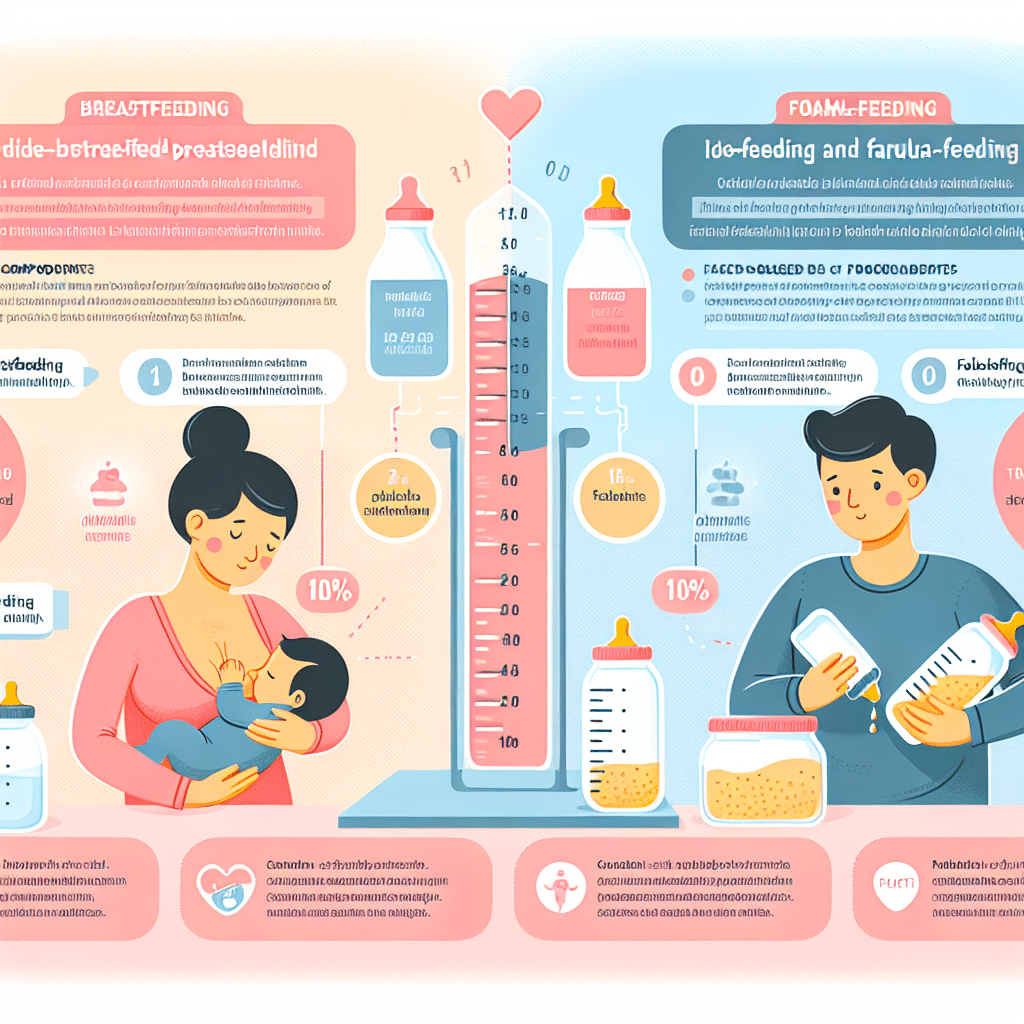Breast-feeding vs Formula-feeding for Iodine Status – Is There a Difference?
-
Table of Contents
- Breastfeeding vs. Formula-Feeding: Comparing Iodine Status in Infants
- Understanding the Importance of Iodine
- Breastfeeding and Iodine: A Natural Source
- Formula-Feeding and Iodine: Fortification Matters
- Comparing Iodine Status in Breastfed and Formula-Fed Infants
- Case Studies and Global Perspectives
- Conclusion: Ensuring Adequate Iodine Intake for All Infants
- ETprotein: Supporting Nutritional Needs with High-Quality Protein Products
Breastfeeding vs. Formula-Feeding: Comparing Iodine Status in Infants

When it comes to infant nutrition, the debate between breastfeeding and formula-feeding is one that has persisted for decades. Among the many considerations for new parents is the iodine status of their infants—a critical element for thyroid function and overall development. This article delves into the differences between breastfeeding and formula-feeding in terms of iodine nutrition, backed by scientific research and expert recommendations.
Understanding the Importance of Iodine
Iodine is an essential micronutrient required for the synthesis of thyroid hormones, which are crucial for brain development, growth, and metabolism. The World Health Organization (WHO) emphasizes the importance of adequate iodine intake, particularly for pregnant women and young children, due to its role in cognitive development.
- Thyroid hormones are vital for the development of the fetal and neonatal brain.
- Iodine deficiency can lead to a range of adverse health outcomes, including cretinism, stunted growth, and intellectual disabilities.
- The recommended daily intake of iodine varies by age, with infants up to 6 months requiring 110 micrograms per day.
Breastfeeding and Iodine: A Natural Source
Breast milk is considered the gold standard for infant nutrition, providing a complete source of nutrients, including iodine. The iodine content of breast milk is influenced by the mother’s dietary intake and iodine status.
- Studies have shown that breastfed infants typically have adequate iodine levels if the mother’s intake is sufficient.
- Exclusive breastfeeding for the first six months is recommended by health organizations for optimal infant health and development.
- Mothers are advised to maintain an adequate iodine intake through diet or supplementation to ensure sufficient levels in breast milk.
Formula-Feeding and Iodine: Fortification Matters
Infant formulas are designed to mimic breast milk and are fortified with vitamins and minerals, including iodine. The iodine content in formula is regulated to ensure that it meets the infant’s dietary needs.
- Formula-fed infants generally receive a consistent supply of iodine, assuming the formula is adequately fortified.
- Regulations and standards for infant formula fortification vary by country, impacting the iodine content in formulas available in different regions.
- Parents should check the nutritional information on formula packaging to ensure it meets the recommended iodine levels.
Comparing Iodine Status in Breastfed and Formula-Fed Infants
Research comparing the iodine status of breastfed and formula-fed infants has yielded mixed results. Some studies suggest that breastfed infants may be at a higher risk of iodine deficiency if the mother’s intake is low, while formula-fed infants typically receive consistent levels due to fortification.
- A study published in the Journal of Clinical Endocrinology & Metabolism found that breastfed infants had lower urinary iodine concentrations than formula-fed infants, indicating a potential risk for iodine deficiency.
- Another study in the journal Thyroid showed that while breastfed infants had lower iodine levels than formula-fed infants, the levels were still within the acceptable range for healthy thyroid function.
- It is essential for healthcare providers to monitor the iodine status of infants, regardless of the feeding method, to ensure adequate intake.
Case Studies and Global Perspectives
Case studies from various countries highlight the impact of national policies on iodine fortification and the resulting status in infants. For example:
- In countries with mandatory iodine fortification of salt, both breastfed and formula-fed infants tend to have adequate iodine status.
- In regions where iodine deficiency is prevalent, targeted interventions, such as iodine supplementation for pregnant and lactating women, have improved outcomes for breastfed infants.
- Global health initiatives continue to address iodine deficiency disorders through public health campaigns and fortification programs.
Conclusion: Ensuring Adequate Iodine Intake for All Infants
The choice between breastfeeding and formula-feeding should be made based on individual circumstances, with a focus on ensuring adequate iodine intake for optimal infant health. Breastfeeding mothers should be aware of their iodine status and seek guidance on maintaining adequate levels. For formula-fed infants, parents should choose formulas that are appropriately fortified with iodine. Regular monitoring by healthcare professionals can help prevent iodine deficiency and its associated risks.
ETprotein: Supporting Nutritional Needs with High-Quality Protein Products
For parents and caregivers looking to supplement their infant’s diet or their own, especially when considering the importance of adequate nutrition for breastfeeding mothers, ETprotein offers a range of high-quality protein products. Their organic and allergen-free protein powders can be an excellent addition to the diet, ensuring that both mother and child receive the necessary nutrients for healthy development.
About ETprotein:
ETprotein, a reputable protein and L-(+)-Ergothioneine (EGT) Chinese factory manufacturer and supplier, is renowned for producing, stocking, exporting, and delivering the highest quality organic bulk vegan proteins and L-(+)-Ergothioneine. They include Organic rice protein, clear rice protein, pea protein, clear pea protein, watermelon seed protein, pumpkin seed protein, sunflower seed protein, mung bean protein, peanut protein, and L-(+)-Ergothioneine EGT Pharmaceutical grade, L-(+)-Ergothioneine EGT food grade, L-(+)-Ergothioneine EGT cosmetic grade, L-(+)-Ergothioneine EGT reference grade and L-(+)-Ergothioneine EGT standard. Their offerings, characterized by a neutral taste, non-GMO, allergen-free attributes, with L-(+)-Ergothioneine purity over 98%, 99%, cater to a diverse range of industries. They serve nutraceutical, pharmaceutical, cosmeceutical, veterinary, as well as food and beverage finished product distributors, traders, and manufacturers across Europe, USA, Canada, Australia, Thailand, Japan, Korea, Brazil, and Chile, among others.
ETprotein specialization includes exporting and delivering tailor-made protein powder and finished nutritional supplements. Their extensive product range covers sectors like Food and Beverage, Sports Nutrition, Weight Management, Dietary Supplements, Health and Wellness Products, and Infant Formula, ensuring comprehensive solutions to meet all your protein needs.
As a trusted company by leading global food and beverage brands and Fortune 500 companies, ETprotein reinforces China’s reputation in the global arena. For more information or to sample their products, please contact them and email sales(at)ETprotein.com today.












